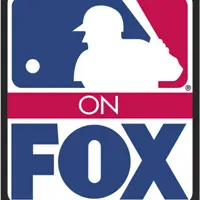Will sports remain must-watch TV when fans aren't in the stands?
-

"Without live spectators for an extended period, traditional games risk being reduced to mathematics with trading cards, especially once the novelty of sports’ return wears off," says Jeré Longman. "For those watching on television, spectators are necessary surrogates. They provide jersey-wearing pageantry, face-painted tribalism and adrenaline for the players. Their responses of jubilation and anguish verify our passionate responses. Their voices become our soundtrack, collectively rising in anticipation, thunderously exhaling in joy or disapproval. And they reinforce the belief that we can directly influence the outcome of a game with our loyalty and howling presence. Fallow stadiums would not signal a return to normalcy as states reopen. They would confirm that we remain in a time of dire abnormality, undercutting the appeal of sports as escape and distraction. And they would raise an uncomfortable question: If it is unsafe for people to gather in the stands or in places like restaurants and parks, why is it acceptable to ask athletes to compete for our entertainment? Especially since many sports rely heavily on black and brown athletes while Covid-19 disproportionately affects the lives of black and brown people in the United States."
ALSO:
- Political leaders are pushing for the return of sports because nothing screams "normal" like sports: "The political-industrial complex is not all THAT interested in whether or not the Chiefs can repeat as Super Bowl champs, but it knows you and I will be," says Drew Magary. "In a cascade of ironic developments, sports are potentially the most effective form of PR any politician can wield right now. Imagine if the NFL season is canceled. Imagine Joe Biden pointing at Trump and going, 'This guy here took your football season away.' There wouldn’t be an easier way to bury that man. Americans don’t care about all the dead bodies, because Americans don’t care about anyone anymore. But they would very much care if they turned on the TV on Sunday and found nothing but syndicated reruns of Star Trek: Voyager. They would be f*cking P*SSED. I know I would be. I love football, and I hate the president."
- It's probably not safe for sports to come back, but that may not matter: "When you break down the American sports leagues’ plans to come back, that simple fact — that it’s not much safer out there, but states are opening up anyway — seems to be at the core," says Will Leitch. He adds: "At a certain level, can you blame them? When the governor of New York, the hardest hit state in the country, is saying the state will work with sports leagues to return, and the governor of California pronounces that fan-less pro sports could return in June, well, that’s just about all the cover the leagues need. The safety plan put forward by Major League Baseball in a mammoth memo is impressively granular in its detail. But it may not guarantee everyone’s safety; older coaches, support staff, and immune-compromised players will be particularly at risk. (MLB also has a steep mountain to climb selling the plan to the players union.) But if the majority of states and lawmakers are going full-speed ahead, or at least half-speed ahead, why wouldn’t leagues do the same? If Georgia is opening its freaking Crunch gyms, it doesn’t seem all that insane to try to play some basketball. Here’s the thing, though: It might still be insane, because we’re all sort of walking around in the dark here."
- Korean baseball and German Bundesliga show the challenges of fan-less games for players: "As elite athletes, whose bodies and minds are steeled by repetition and regimen, return from quarantine to their professional craft, their training will include adapting to a new psychological reality," says Danny Chau. "For those accustomed to playing in packed arenas, the absence of spectators is a big hurdle to overcome...Getting used to ghost games may be harder for athletes than for their fans. Broadcast media of all kinds have taught listeners and viewers to appreciate the game from afar. But the professional athlete has routines and rituals built around the energizing presence of crowds." He adds: "Uproarious fans in a stadium create a pressurized atmosphere designed to test the mettle and anxieties of an athlete."
- Sports broadcasting legends weigh in on fan-less games: Al Michaels believes broadcasters should be in NFL stadiums, Marv Albert expects to call NBA games from a studio.
- Quirky sports like cornhole have helped fill the pandemic void
TOPICS: Major League Baseball, Al Michaels, Marv Albert, Coronavirus, NBA, NFL, NHL, Sports
More Major League Baseball on Primetimer:- What happened to Rio Foster? GoFundMe for LA Angels prospect raises over $47,000 following accident
- Did Jeffrey Lurie announce he would permanently ban the Phillies Karen from entering Lincoln Financial Field? Viral claim debunked
- "Do your thing Twitterverse, make her famous": Memes erupt over Phillies Marlins Karen as fan steals ball from young kid in viral video
- TV Today: Fox Hopes MLB Field of Dreams Game Can Catch Lightning in a Bottle — Again
